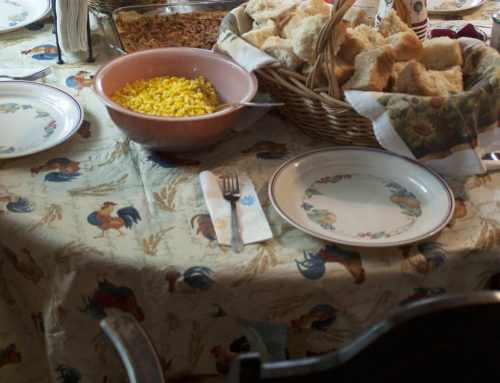Surviving Thanksgiving: Strategies for Managing Family at the Holidays
<p>Flip on the TV at time this year and you’re likely to find some program or movie showing the ideal family Thanksgiving– loving family, perfectly set table, and laughter and good cheer all around. You can also find holiday cheer on Facebook or Instagram. <br /><br />Perhaps nowhere else in American culture is there a bigger gap between reality and fantasy than at the holidays. Most of us feel the pressure to have a perfect holiday with the perfect family. The reality is that no holiday is perfect, and for many with challenging familial relationships, the holidays can be as far from perfect as possible. Here are some tips to help you have the best Thanksgiving for you and your family:</p><p><b></b><b>Ahead of time:</b></p><p>There are some things you can do leading up to the big day to lessen the stress level.</p><ul><li><b>Be honest with yourself.</b> With a little bit of insight, you can identify the family dynamics that will play out during the holidays (e.g. your mom and your aunt always fight, your uncle drinks too much, your dad has never liked your brother-in-law, etc.). Hoping these things will magically change for the holidays will only set you up for disappointment. Instead, recognize that these dynamic exist and mentally prepare for them to play out.</li></ul><ul><li><b>Invite buffers to the meal.</b> Buffers are friends outside of the family dynamics. The presence of the right buffers can help keep people on their best behavior and diffuse the dynamics that can play out when only family is present.</li></ul><ul><li><b>Break up the event or number of events.</b> For families that are geographically dispersed or involve multiple households (such as divorced families), simply getting to events can be physically, emotionally and financially exhausting and can undermine the actual experience of connecting with family. In these cases, consider alternating holidays (mom for Christmas, dad for Thanksgiving), offer to host events (so you don’t have to travel, but only include family that can be in the same room) or consider celebrating at different times of the year to offset traveling multiple times over a few weeks.</li></ul><p><b>Dealing with that day:</b></p><p>Now the day has arrived, here are some tips for surviving uncomfortable interactions and unsolicited advice:</p><ul><li><b>Have a go-to person at the event.</b> It can be a spouse or a relative who understands and feels similarly about the stress of family interactions. Have a look or signal that says “I need to get out of this conversation now!”</li></ul><ul><li><b>Realistic expectations for kids:</b> Kids get restless without activity, so have a craft, game or movie available so they can leave the table and the adults can continue enjoying the conversation.</li></ul><ul><li><b>Humor.</b> Tired of being asked when you are going to: get married, have kids or get a promotion? Use humor to diffuse the situation or imagine how you can retell it to your friends after the holidays and have a good laugh about all the craziness of family.</li></ul><ul><li><b>Seating arrangements.</b> Use a strategic seating arrangement to keep volatile people apart from each other (and you).</li></ul><ul><li><b>Take a deep breath.</b> When all else fails, take a deep breath, choose if you want to address something directly (“I am uncomfortable when you ask me about ____”) or let it go (mantra: this event is only 5 hours and I can survive anything for 5 hours). </li></ul><p>When you see holiday movies or staged Facebook posts this year, remind yourself there is no perfect holiday get together. Instead, try to find the ways to minimize the stress and maximize the positive interactions so that you can have a “good enough” holiday.</p>







